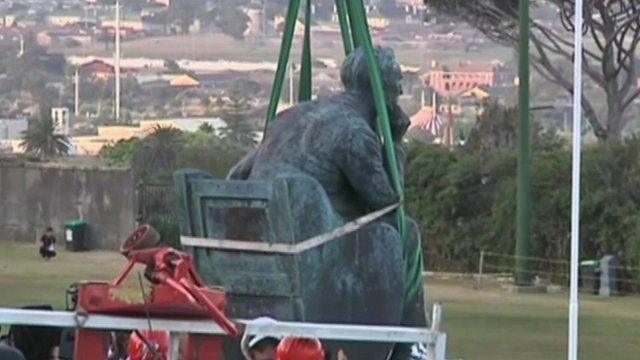Removing Rhodes statue 'moral vanity', says Tony Abbott
- Published
- comments
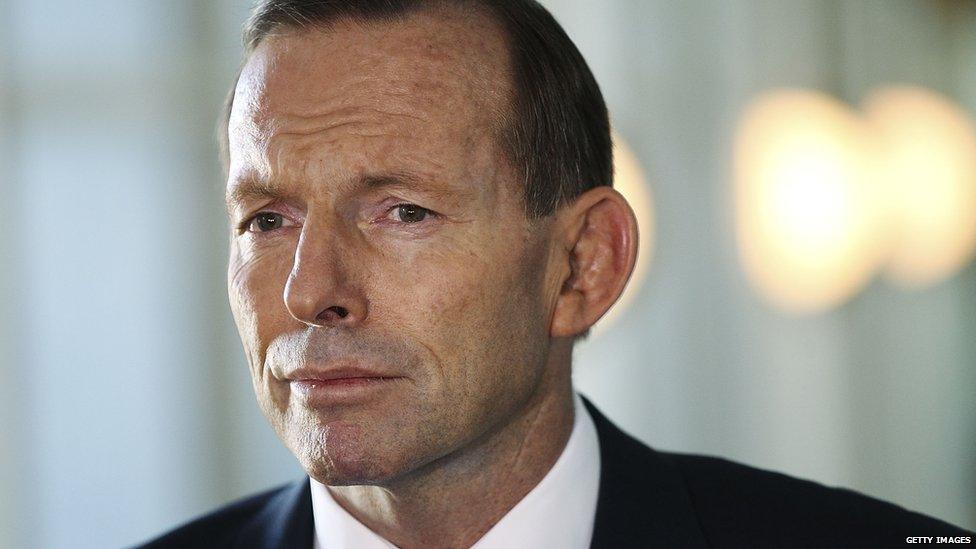
Tony Abbott wants an Oxford college to keep its controversial statue of colonialist Cecil Rhodes
Oxford University should not remove a controversial statue of Cecil Rhodes from Oriel College, former Australian Prime Minister Tony Abbott has said.
Students say the 19th Century colonialist's views are against the "inclusive culture" at the university.
Oriel College, which Rhodes attended, has agreed to remove a commemorative plaque in response to the campaign.
Mr Abbott, a Rhodes Scholar, said removing the statue would "substitute moral vanity for fair-minded enquiry".
Oxford University's Rhodes Scholarship is funded thanks to a legacy left after his death in 1902.
"The university and its students should prefer improving today's orthodoxies to imposing them on our forebears," Mr Abbott told the Independent newspaper, external.
"The university should remember that its mission is not to reflect fashion but to seek truth and that means striving to understand before rushing to judge."
Mr Abbott said that while Rhodes himself had not campaigned against racism, many of the scholars who benefited from his legacy had done so.
"We can lament that he failed to oppose unjust features of his society while still celebrating the genius that led to the creation of the Rhodes Scholarships."
#RhodesMustFall
The #RhodesMustFall movement began in South Africa, where students succeeded in having a statue of the diamond tycoon and colonial-era leader removed from the University of Cape Town.
Students involved in the movement argue that Rhodes' involvement in apartheid and land seizures in 19th Century Africa make him unworthy of commemoration.
More than 2,300 people signed a petition calling for the removal of the statue from Oriel College.
The college responded by saying it would ask for permission to remove a plaque celebrating Rhodes and begin a consultation process about the future of the statue.
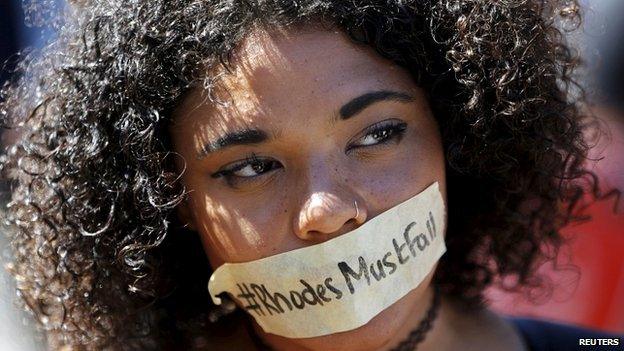
The Rhodes Must Fall campaign saw the removal of a statue in Cape Town
"Rhodes was… a 19th Century colonialist whose values and world view stand in absolute contrast to the ethos of the scholarship programme today, and to the values of a modern university," it said in a statement.
Besides Mr Abbott, other prominent Rhodes Scholars have spoken out against the removal of the statue.
Former New Zealand rugby scrum half Chris Laidlaw told the Times he thought Rhodes' views were typical of his generations and that to expunge his memory would be unfair.

Who was Cecil Rhodes?
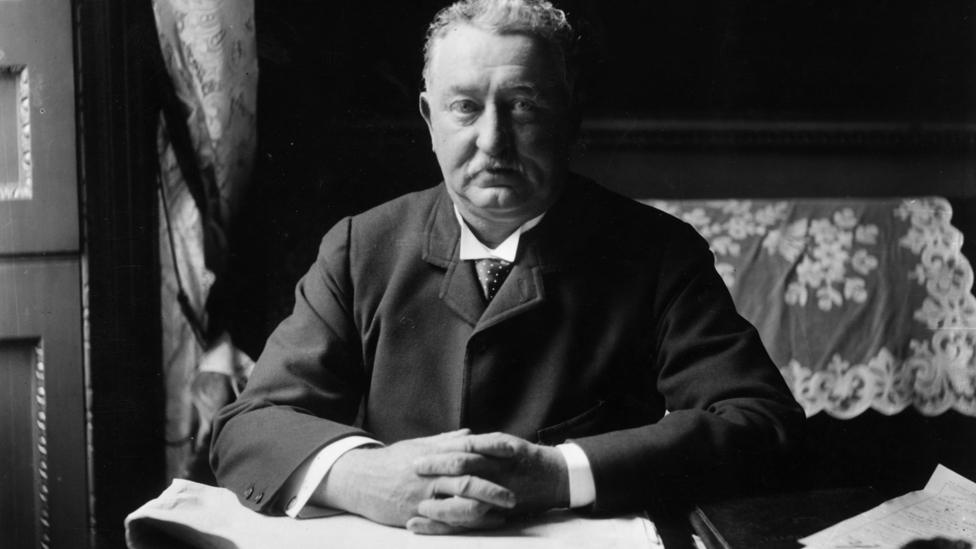
Imperialist, businessman and politician who played a dominant role in southern Africa in the late 19th Century, driving the annexation of vast swathes of land
Born the son of a vicar in Bishop's Stortford, Hertfordshire, in 1853, first went to Africa at the age of 17; grew cotton with his brother in Natal, but moved into diamond mining, founding De Beers, which until recently controlled the global trade
Rhodes's bequest continues to finance scholarships bearing his name, allowing overseas students to come to Oxford University; most famous of these was probably Bill Clinton
Controversial even in his own time, Rhodes backed the disastrous Jameson Raid of 1895, in which a small British force tried to overthrow the gold-rich Transvaal Republic, helping prompt the Second Boer War, in which tens of thousands died

- Published23 December 2015
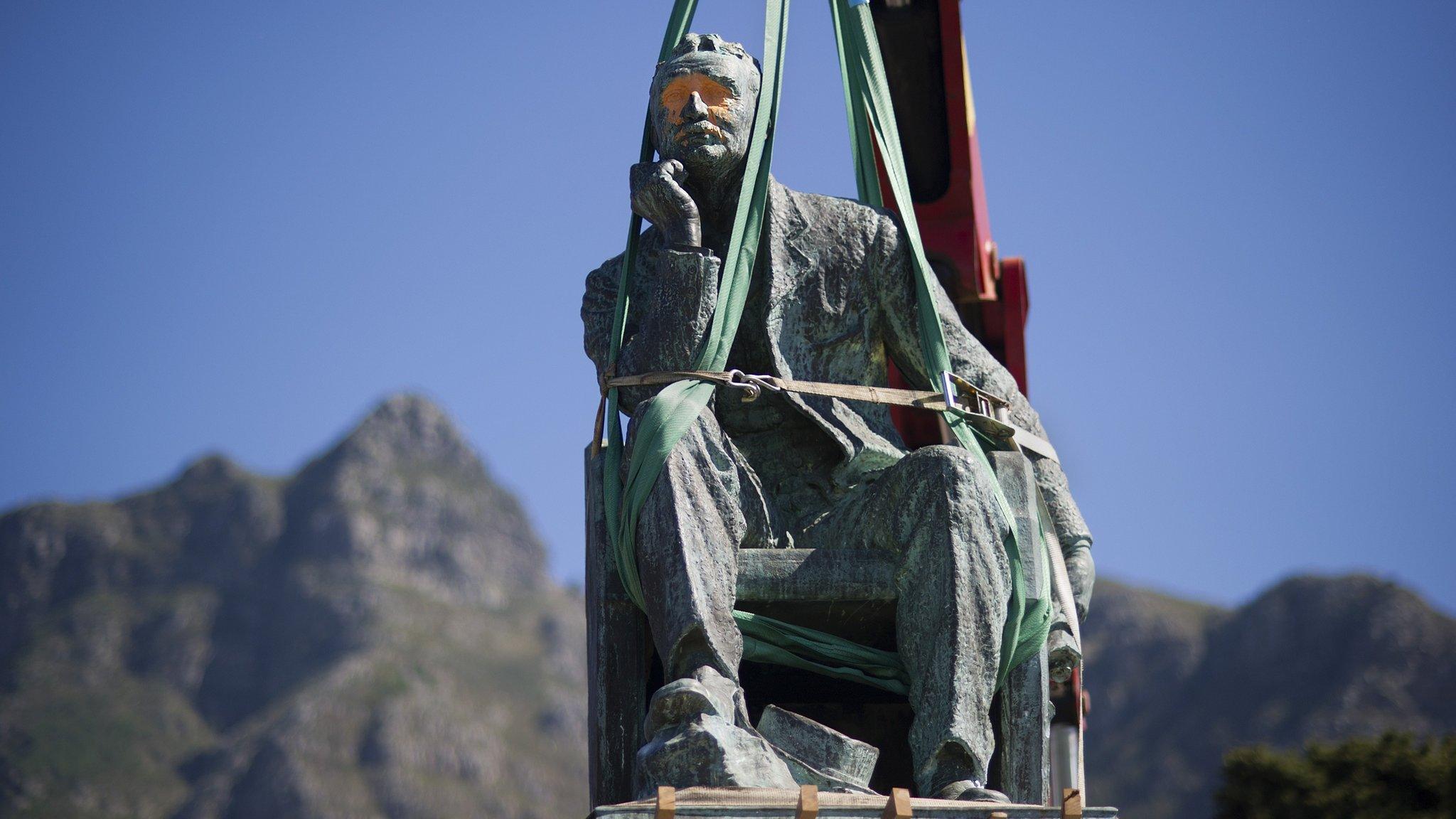
- Published17 December 2015
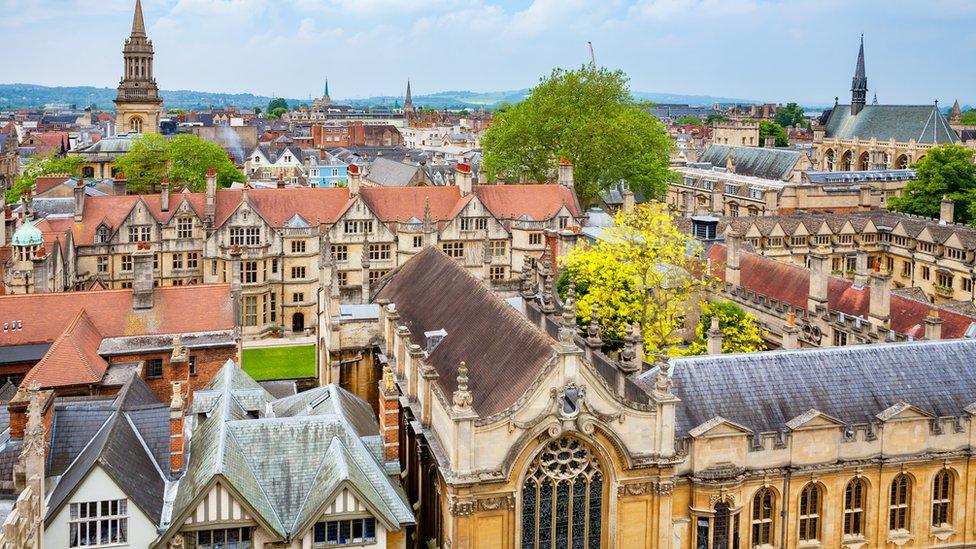
- Published9 April 2015
